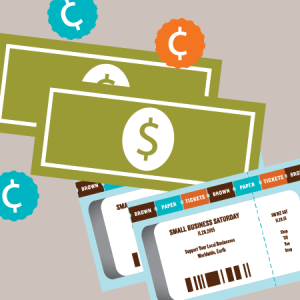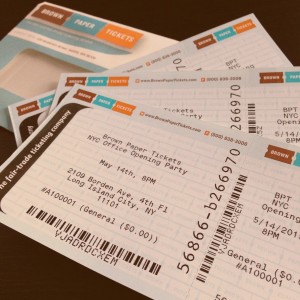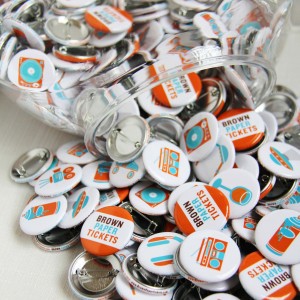
 Fear of missing out, or FOMO is defined as “anxiety that an exciting or interesting event may currently be happening elsewhere, often aroused by posts seen on a social media website.” It’s that little twinge that convinces you that you could be having the time of your life … if you went somewhere else.
Fear of missing out, or FOMO is defined as “anxiety that an exciting or interesting event may currently be happening elsewhere, often aroused by posts seen on a social media website.” It’s that little twinge that convinces you that you could be having the time of your life … if you went somewhere else.
“My friends are doing something amazing and I am just sitting here.”
“Why am I not dancing … so and so is out dancing.”
“I can’t believe I am missing That Band.”
In 2013, Mashable reported that 56% of social media users suffer from FOMO and we’re sure that number is a lot higher now. Tap into FOMO for your event promotions and get more attendees.
Creatively Name Your Events
The event name is the first thing your potential attendees will see on their newsfeeds. It’s important. Have a namestorming session. Write a list of words associated with your event and go two steps beyond what’s there. Create a double-entendre. Smush two words together into a memorable portmanteau. Make it rhyme or make it alliterative. If you get stuck, use the thesaurus.
If you’re promoting a reading with a new memoir author, instead of an “Evening with Elisa,” strive to stand out. Make it playful. “Elisa Shares Embarrassing Childhood Stories,” “Elisa Reads Her Diary to Strangers,” “Who the Heck is Elisa? Find Out.”
Use a creative hashtag from the beginning of your promotions. Put it on the fliers and in your event copy. That way, people may use it before your event to talk about it.
Facebook Event Promotion
The FOMO first step is getting your fans’ friends to go. Create a public Facebook event page and invite all of your fans and/or friends to RSVP and get tickets. For maximum success, start your Facebook FOMO promo 4-6 weeks out. That person’s friends will see that they clicked “interested,” or “going” and BOOM! the event is not only on their radars, it stays there.
• Tag the venue so that the venue can share your event too.
• Include a link to buy tickets in the copy.
• Experiment with targeted Facebook ads or boost the update, so more followers see it.
Go Live
Use Facebook Live to get potential attendees off the couch and to your event or to make them see that they’re missing out so they go to the next one. Go Live during one of your speaker’s presentations or send out an Instagram story of your band’s rehearsal.
Live video can be tricky. Make sure you’re in a well-lit spot close to the action and keep it steady with a phone tripod.
Photo/Video Promotion
In general, high-quality photos work better than graphics for your event pages. Nothing incites FOMO better than a photo or video, as it helps your visitors see themselves at your event. Don’t just focus on performers; take snaps of the crowd laughing, dancing and having a grand time. Use these to promote your next event.
Word to the wise: Ask permission before you use your attendees’ photos or include language in your event’s terms and conditions regarding photography usage.
What strikes your FOMO and gets you to an event? Comment below and share your event promotion ideas.






 Arts
Arts Comedy
Comedy Event Tips
Event Tips Film
Film Food & Drink
Food & Drink Good Causes
Good Causes Music
Music News
News Radio
Radio Roller Derby
Roller Derby